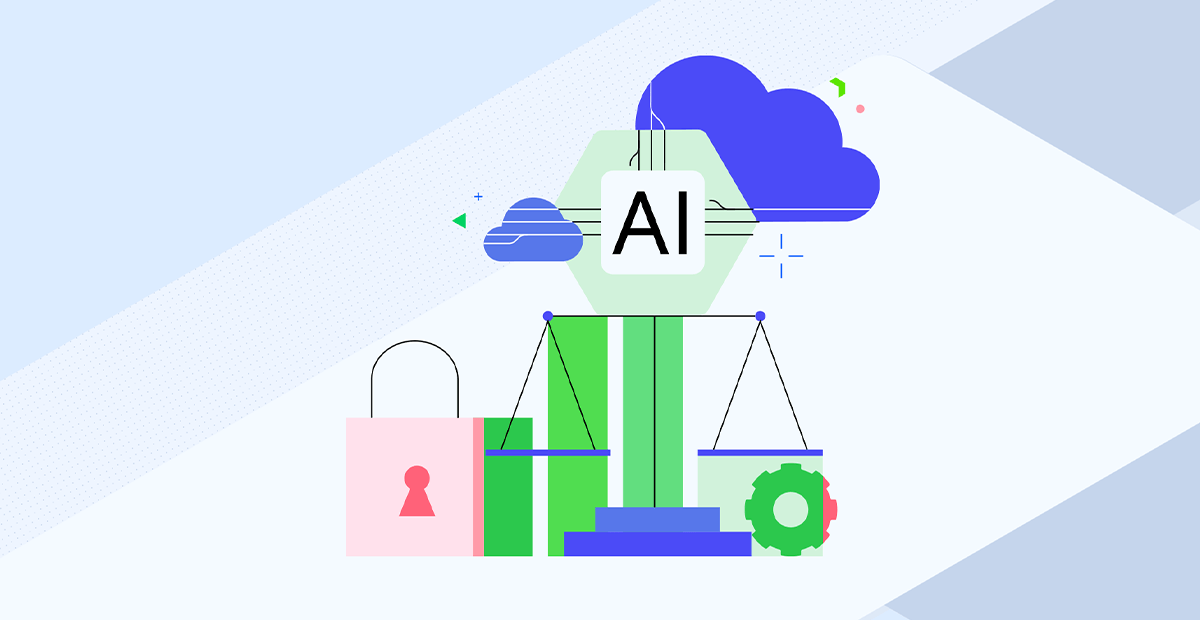Imagine you are standing beside a railroad track that splits just ahead. You hold the lever that determines which path the approaching train will take. On one track, a woman and her child are stuck; on the other, a man and his wife. Both parties are in peril, and you must decide whom to save. This scenario, known as the trolley problem, is a classic thought experiment in philosophy that illustrates the complexities of ethical decision-making.
In the realm of artificial intelligence (AI), we face similar dilemmas. What ethical principles should guide the development and deployment of AI? How do we make sure that AI systems are trained in a balanced manner to produce fair outcomes for users? Addressing critical questions like these is crucial not only for academic discourse but also for businesses that aim to leverage AI for innovation while maintaining integrity.
Verifying that AI operates ethically and that these ethics are well-governed presents significant challenges. As we explore the intersection of ethics, AI and governance, it is essential to consider the steps we can take to develop AI systems that are fit for an ethical future, benefiting everyone equitably.
Introduction to AI Ethics and Governance
As AI continues to be integrated into various facets of society, the importance of ethical considerations and robust governance frameworks cannot be overstated. AI systems hold immense potential to revolutionize industries, improve efficiencies and offer innovative solutions to complex problems. However, with this potential comes significant ethical and governance challenges that must be addressed so these technologies can be developed and deployed responsibly.
Ethical AI usage revolves around principles of fairness, accountability and transparency. These principles aim to prevent biases, drive accountability for AI-driven decisions and make the operations of AI systems understandable and explainable for users. Fairness helps users avoid discriminatory practices, accountability confirms that human oversight is maintained and transparency allows users to trust and verify AI outcomes.
Governance of AI involves creating and implementing frameworks, policies and best practices that guide the ethical use of AI technologies. This includes establishing standards for data collection, addressing biases in AI systems, complying with regulations and fostering inclusive development practices. As AI becomes more embedded in critical processes, from healthcare to finance, the risks associated with bias, lack of transparency and accountability failures become more pronounced.
To tackle these challenges, organizations and policymakers must adopt a multi-faceted approach that includes continuous monitoring, diverse and inclusive AI development teams and clear ethical guidelines. Case studies and real-world applications of AI ethics in various industries provide valuable lessons and highlight the need for ongoing vigilance and adaptation of governance practices.
Here are five key areas to explore when looking at ethical AI and its governance:
1. Frameworks for Responsible AI Usage
AI ethics provide guardrails for AI systems to be designed and used in ways that are fair, accountable and transparent. Key frameworks include:
- Fairness: AI systems must avoid biases that can lead to unfair treatment of individuals or groups. This involves using diverse datasets and continually monitoring for biases that could affect outcomes.
- Accountability: There should be clear accountability for the decisions made by AI systems. This can involve keeping logs of AI decisions and confirming there are humans in the loop who can intervene when necessary.
- Transparency: AI systems should be transparent in their operations. Users should understand how decisions are made and have the ability to challenge and review these decisions if needed.
2. Methods for Mitigating Bias
AI systems can inadvertently inherit biases present in their training data. To mitigate this:
- Diverse Data Collection: Verify that training data is representative of all relevant groups and contexts. This helps in minimizing the risk of the AI model developing biased behaviors.
- Bias Testing and Audits: Regularly test AI models for bias and perform frequent audits so they remain unbiased. This includes checking for disparate impacts on different demographic groups.
- Inclusive Development Teams: Having diverse teams involved in the development process can help identify and mitigate biases that homogeneous teams might miss.
3. Ethical Frameworks and Policies
Establishing ethical frameworks and policies helps guide the development and deployment of AI systems:
- Ethical Guidelines: Organizations should develop guidelines that outline the ethical use of AI as it relates to privacy, security and non-discrimination.
- Regulatory Compliance: AI systems should comply with existing regulations and standards, such as GDPR for data protection and privacy in Europe.
- Ongoing Education and Training: Regularly train employees on ethical AI practices and update them on new ethical challenges and solutions.
4. Case Studies and Examples
Real-world examples and case studies can illustrate the application of AI ethics and governance:
- Healthcare: AI systems used in healthcare should prioritize patient privacy and consent so that data is used ethically and transparently.
- Finance: In finance, AI can be used to detect and prevent fraud without unfairly targeting specific groups or individuals.
- Employment: AI in hiring should be carefully monitored to avoid discrimination based on gender, race or other protected characteristics.
5. Challenges and Solutions in AI Governance
Implementing AI governance involves overcoming several challenges:
- Dynamic Regulation: AI technology evolves rapidly, making it challenging to create regulations that keep pace. Adaptive and flexible regulatory approaches are needed.
- Global Standards: Establishing global standards for AI ethics and governance helps support consistent practices across different regions and industries.
- Stakeholder Engagement: Engaging a wide range of stakeholders, including technologists, ethicists and the public, is crucial in developing comprehensive governance frameworks.
Expanding Ethical AI Usage
Once the fundamental aspects of AI ethics and governance have been addressed, the next step involves democratizing access to AI. Democratizing AI prevents the benefits of AI technologies from being limited only to large corporations or well-funded institutions and extends access to a broader range of users, including small businesses, non-profits and individuals from diverse backgrounds. These efforts should include:
Education and Training: Provide widespread educational resources and training programs to equip individuals with the skills needed to develop and utilize AI technologies. This can include online courses, workshops and partnerships with educational institutions.
Open-Source AI Tools: Promote the development and dissemination of open-source AI tools and frameworks. Open-source AI tools lower the barrier to entry by allowing users to access and contribute to AI technologies without prohibitive costs.
Affordable AI Services: Develop and offer affordable AI services and platforms that cater to small and medium-sized enterprises (SMEs) and non-profit organizations. Cloud-based AI services can provide scalable solutions that do not require significant upfront investments in hardware or software.
Inclusive AI Communities: Foster inclusive communities and networks that support collaboration and knowledge-sharing among AI practitioners from diverse backgrounds. Encouraging participation from underrepresented groups enables a wider range of perspectives and innovations.
Policy and Regulation Support:
Advocate for policies and regulations that support the democratization of AI. This includes funding for AI research and development in underserved areas as well as incentives for companies that contribute to open-source projects or provide educational resources.
What’s on the Horizon for Ethical AI
By addressing ethical and governance challenges and promoting the democratization of AI, we can create a more equitable landscape where the advantages of AI technologies are available to all. This not only fosters innovation and growth across different sectors but also keeps the development of AI aligned with societal values and positioned to benefit humanity as a whole.
AI ethics and governance are essential for enabling AI technologies to benefit society while minimizing harm. By establishing robust frameworks, mitigating biases, adhering to ethical guidelines and learning from real-world examples, organizations can navigate the complexities of AI deployment responsibly.
To find out how our technology can support your AI projects, download our free guide.

Philip Miller
Philip Miller serves as the Senior Product Marketing Manager for AI at Progress. He oversees the messaging and strategy for data and AI-related initiatives. A passionate writer, Philip frequently contributes to blogs and lends a hand in presenting and moderating product and community webinars. He is dedicated to advocating for customers and aims to drive innovation and improvement within the Progress AI Platform. Outside of his professional life, Philip is a devoted father of two daughters, a dog enthusiast (with a mini dachshund) and a lifelong learner, always eager to discover something new.

